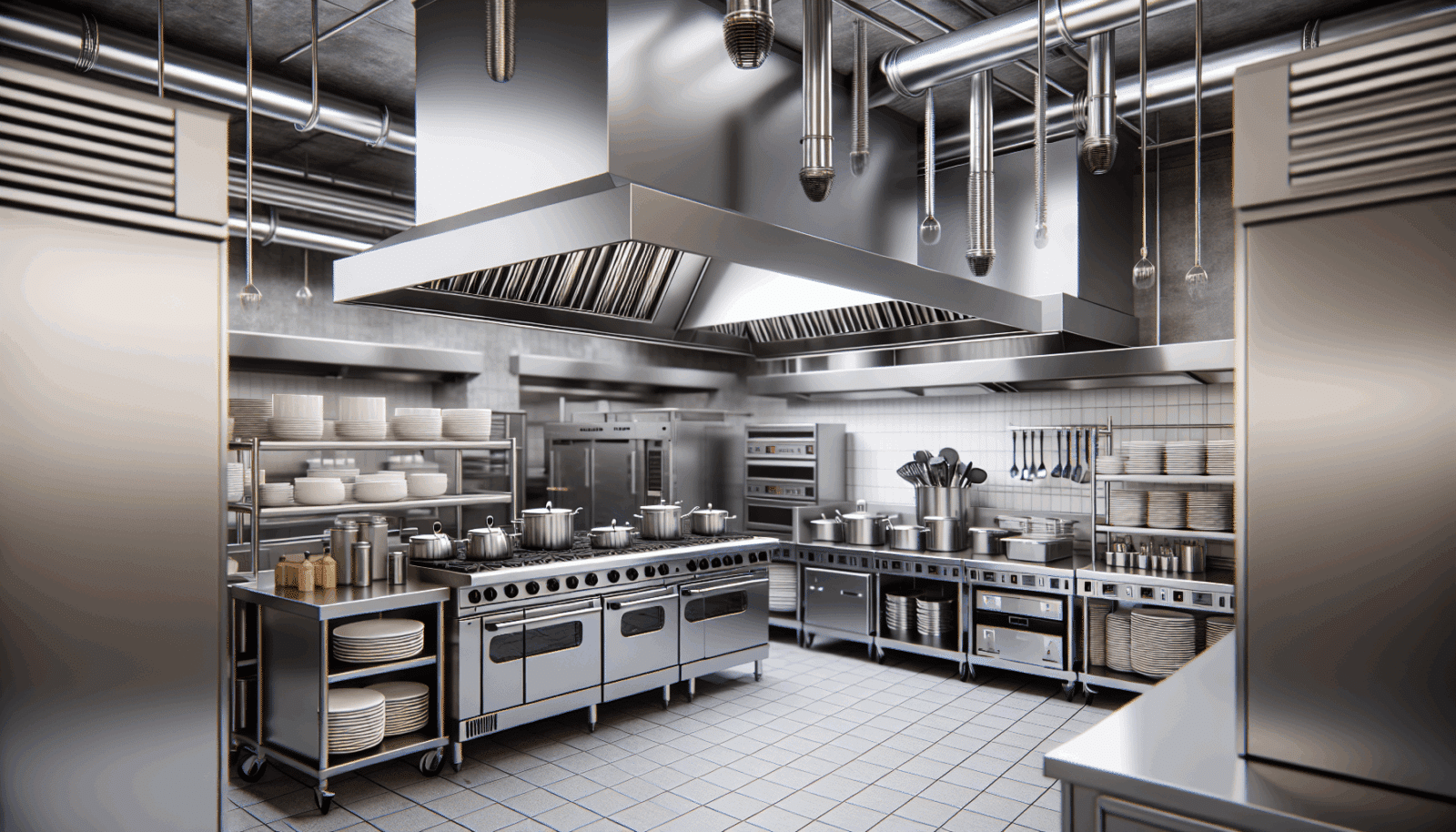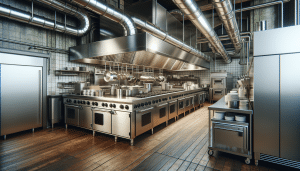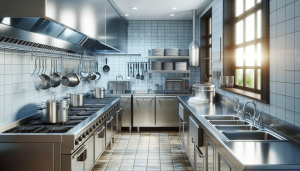At Utah Hood Cleaning, we understand the importance of keeping your Commercial kitchen compliant with fire safety standards. In this article, we will provide you with essential tips to master fire safety and keep your kitchen running smoothly. By following these guidelines, you’ll ensure the safety of your team and customers while avoiding costly fines and downtime. Let’s dive right in and get your kitchen up to code!
Understanding Fire Safety Regulations
Fire safety regulations are the cornerstone of running a safe commercial kitchen. These laws are designed to prevent fires, save lives, and protect property. It’s essential to stay updated on the latest regulations and ensure your kitchen meets or exceeds these standards. This article will help you navigate these rules effortlessly.
The Importance of Regular Hood Cleaning
Regular hood cleaning is not just a recommendation; it’s a necessity. A clean kitchen hood minimizes the risk of Grease fires, which are common in commercial kitchens. When you maintain your kitchen hood, you help reduce airborne contaminants and improve kitchen air quality, making the environment safer for everyone.
Additionally, consistent hood cleaning helps your kitchen equipment operate efficiently, leading to lower energy costs. A professionally cleaned hood system will extend the lifespan of your kitchen equipment and keep it running at peak performance.
How Often Should You Clean Your Kitchen Hood?
The frequency of cleaning your kitchen hood depends on the type and volume of cooking you perform. According to the National Fire Protection Association (NFPA), different cooking operations require different cleaning intervals. For instance, high-volume cooking (24-hour kitchens or those using solid fuel) may need monthly cleaning, while moderate-volume kitchens might only need quarterly or semi-annual cleanings.
It’s crucial to assess your kitchen’s unique needs and schedule hood cleaning accordingly. Keep records of each cleaning session to stay compliant with local regulations and insurance requirements.
Choosing the Right Hood Cleaning Service
Selecting a reputable hood cleaning service is critical for maintaining compliance and ensuring peace of mind. Not all hood cleaning Services are created equal, so it’s essential to choose a company with a proven track record of excellence.
At Utah Hood Cleaning, we pride ourselves on delivering top-notch hood cleaning services that meet all regulatory requirements. Our experienced team handles the entire cleaning process, allowing you to focus on what you do best—running your kitchen.
Essential Hood Cleaning Steps
Maintaining a clean kitchen hood involves several essential steps. Here are five key actions to ensure your kitchen hood is in optimal condition:
- Inspection: Conduct a thorough inspection of your hood system to identify any potential issues.
- Grease Removal: Remove all grease buildup from the hood, ductwork, and Exhaust fans.
- Filter Cleaning: Clean or replace filters regularly to ensure proper airflow and reduce fire risk.
- Compliance Check: Verify that your hood system meets all local fire safety codes and regulations.
- Documentation: Keep detailed records of all cleaning and maintenance activities.
The Role of Proper Ventilation
A well-ventilated kitchen is essential for maintaining a safe cooking environment. Proper ventilation helps remove heat, smoke, steam, and odors, ensuring your kitchen stays comfortable and safe for staff. It also plays a crucial role in reducing fire hazards by exhausting flammable vapors and gases.
Make sure your kitchen hood and Exhaust system are adequately designed and maintained to promote effective ventilation. Regular maintenance and inspections help address any issues before they become major problems.
Training Your Staff on Fire Safety
Educating your kitchen staff on fire safety practices is paramount. When everyone understands the importance of following fire safety protocols, the risk of fire incidents significantly decreases. Regular training sessions ensure that all team members are aware of potential hazards and know how to respond in case of a fire.
Consider incorporating fire safety drills and routine reminders into your kitchen’s safety program. Empowering your staff with knowledge and preparedness not only keeps your kitchen safe but also fosters a culture of safety and responsibility.
Investing in Fire Suppression Systems
Fire suppression systems are a critical component of any commercial kitchen. These systems are designed to detect and suppress fires before they can spread. Investing in a reliable fire suppression system provides an extra layer of protection and can significantly reduce damage and downtime in the event of a fire.
Ensure your fire suppression system is professionally installed and regularly serviced. Regular inspections and maintenance are vital to guarantee the system’s effectiveness when needed.
Maintaining Compliance with Local Fire Codes
Staying compliant with local fire codes and regulations is a continual process. Regular inspections, maintenance, and documentation are essential to ensure your kitchen remains up to code. Non-compliance can result in fines, legal issues, and even temporary closure of your kitchen.
Partner with us at Utah Hood Cleaning to stay on top of all compliance requirements. Our team is well-versed in local fire codes and will work with you to ensure your kitchen meets all necessary standards.
Contact Us Today
Ready to master fire safety in your commercial kitchen? Contact Utah Hood Cleaning by phone 801-853-8155 or Request a Free Quote. Let’s keep your kitchen safe and compliant.




